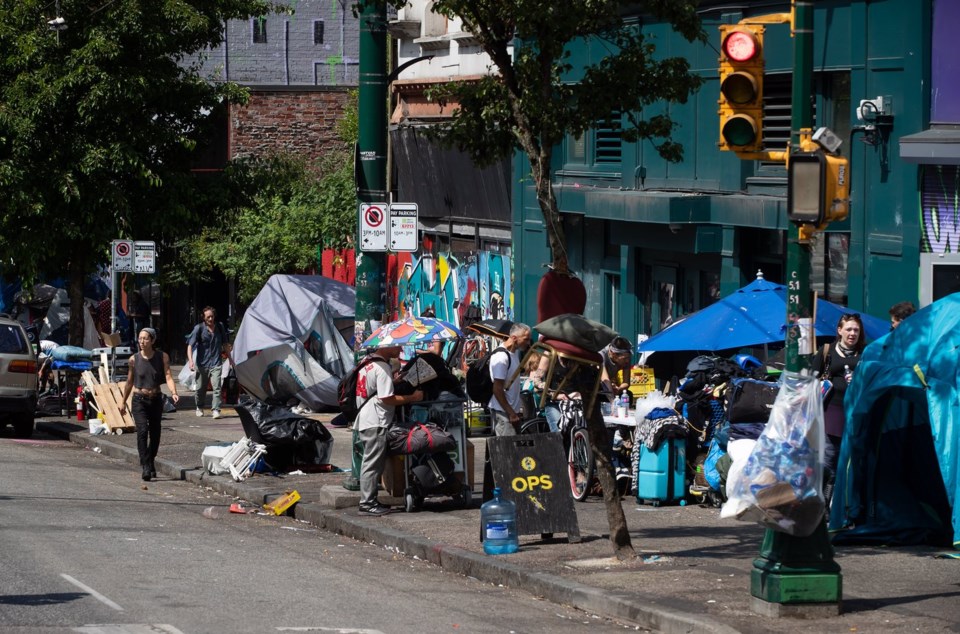VANCOUVER — Critics have denounced Vancouver Mayor Ken Sim's plan for revitalizing the Downtown Eastside neighbourhood, with former councillor Jean Swanson calling his proposal to pause supportive housing construction "Trumpian."
Swanson, an anti-poverty activist, said on Friday that Sim's plans to pause net new supportive housing units in Vancouver and reduce the concentration of social services in the Downtown Eastside are "not compassionate" and are akin to victim blaming.
She said housing was fundamental to health and safety, and with about 3,000 people on the city's supportive housing wait-list, some would "probably die on that wait-list" if no new units were built.
Sim announced his plan at a forum on Thursday held by the Save Our Streets coalition, a group of businesses expressing concerns over crime and public safety in places such as the Downtown Eastside.
He said 77 per cent of Metro Vancouver's supportive services were located in Vancouver, which has about 25 per cent of the region's population.
He attributed some of the Downtown Eastside's woes to its "cycle of hyper-concentrated social services" and said the neighbourhood would be better served by integrating it into the rest of the city.
In a written response, B.C. Housing and Municipal Affairs Minister Ravi Kahlon said he wanted to speak with Sim to find out what exactly the plan entails.
"My understanding is that the mayor’s argument is that he wants to see other communities building more supportive housing, too," Kahlon said.
"I’m sympathetic to that — other communities in Metro Vancouver need to do their part.
"But the simple truth is that if we don’t get housing built in Vancouver and across the region, that means more people living on the street or in encampments. That doesn’t work for anyone, and it makes our communities less safe."
Sim's press secretary, Kalith Nanayakkara, said further details of the plan would be made available closer to the date when the mayor presents a motion on the proposal to council.
Russell Maynard, who says he has worked in community harm reduction for more than 20 years, said in a post on social media platform X that Sim's plan "is the wrong solution to the right problem."
Coun. Peter Meiszner, who is a member of Sim's ABC Vancouver party's majority on council, said on X that "positive change is coming" through the plan, which he called a "long overdue change of direction in city policy to build a healthier neighbourhood."
Swanson said she wasn't surprised by Sim's announcement, noting the council had already got rid of a number of supportive housing units in the city since coming to power in 2022.
"If there's no new supportive housing, we're going to get more homelessness," she said.
"So he may think that he's integrating Downtown Eastside with the rest of the city by making more people homeless. But those people have to go someplace, and it's not going to benefit anybody to have thousands more people on the streets."
This report by The Canadian Press was first published Jan. 24, 2025.
Chuck Chiang, The Canadian Press
